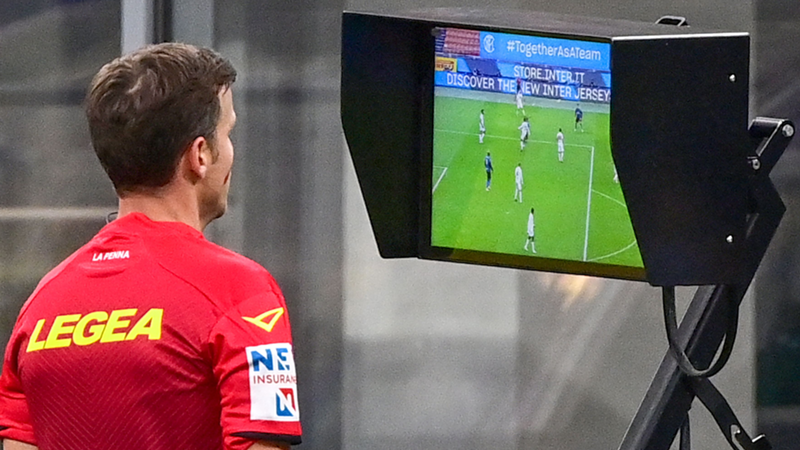Sports
Good, bad, ugly sides of VAR for GPL

A referee conducting a video review with the aid of VAR to overturn or confirm a decision
Ordinarily, the announcement of an intention to introduce the Video Assistant Referee (VAR) into the Ghana Premier League (GPL) should have drawn loud applause from every stakeholder interested in running a truly competitive league planted on the principles of fair play.
At least, it could address some of the concerns expressed by fans over officiating which sometimes causes the abrupt ending of games or the chaotic scenes often recorded at some venues over bad goals scored or conceded.
However, the backlash from fans, a section of the local media and a few administrators on the hint from the Ghana Football Association (GFA) President, Kurt Okraku, suggests
clearly that VAR is a “persona non grata, at least for now.”
At the GFA meet-the-press event in the Bono region, one of the questions put to him was on officiating and measures to ensure a fair and competitive league.
In answering that, he announced the consideration of introducing VAR in the not too distant future.
That has since generated heated debate over whether VAR in Ghana, even in the next decade or more would be a realistic dream.
Gladly, listening to the various arguments, there is no suggestion that VAR is not good or cannot be possible in Ghana.
Fact is, VAR would not fully resolve all the challenges associated with the game as it is even seen in the more sophisticated and advanced leagues across the world.
The truth is, sometimes its decisions are overboard, especially those regarding offside calls as movements and positions of the contour human body are judged by straight lines.
However, it minimises the wrong calls regarding tight offside as well as some handball situations where referees award or disallow as penalties only for VAR to intervene.
Interestingly, the basis for the outright rejection of VAR in Ghana has been centred on the state of the country’s infrastructure.
Running an 18-club league means there would be nine action spots on every match day but one needs to ask how many of these venues can accommodate VAR.
Apart from the Accra Sports Stadium, jokingly likened to the famous Wembley Stadium in England, the Baba Yara Sports Stadium in Kumasi and by extension the Cape Coast and Tamale stadia, none of the other venues qualify to even host Premier League matches if we were to adhere to those high standards.
It is even not an easy assignment for crews that travel to some of these venues to provide live coverage of games.
The struggles encountered in recent times to get the Confederation of African Football (CAF) to sanction venues to host continental matches should be a constant reminder of how the most reliable infrastructures are fast deteriorating.
May be, something should tell the VAR proponents it not for nothing that in England, for example, VAR is allowed only on Premier League grounds and Championship grounds are exempted.
That is not because the Championship grounds are not fit for that purpose. A number of them, if not all, are better than what we have if we are to consider the state of the facilities in there.
That only buttresses the fact that VAR is a whole agency on its own, requiring state-of-the-arts facilities and quality expertise to function.
What also makes the hint sound like an anecdote in the ears of fans is the fact that Ghana as a country has only one qualified VAR referee without an assistant.
This weakens the call to introduce the technology in our game for now.
To the FA President, VAR would surely be a good addition to the league but in doing so, a number of the concerns raised must first and foremost be tackled, otherwise equipment may be sent to venues like Berekum, Dormaa, Bechem, Tamale and others, but may return to Accra in pieces.
By Andrew Nortey